Who was Princess Alice of Greece - Mother of Prince Philip and grandmother of King Charles
- Written by E.Tsiliopoulos
Prince Philip's mother, Princess Alice left a touching letter to her son shortly before she died in 1969, after a lifetime of trials and tribulations.
In those last years, mother and son lived together at Buckingham Palace. Philip was then 48 years old, Duke of Edinburgh, husband of Queen Elizabeth, father of the heir to the throne Charles and three other children. Prince Philip landed in Great Britain’s spotlight through Elizabeth, having previously lived a life marked by great tragedies and by the absence of his mother who was constantly absent, like his father. In Alice's final years, however, the two became closer.
Alice's letter to Prince Philip
Alice wrote to her "beloved Philip" and told him to "be brave" before she passed away at Buckingham Palace on 5 December 1969.
The letter read: "Dear Philip, be brave, and remember that I will never leave you, and you will always find me when you need me most. With all my devotion and love, your old mother."
Mother and son did not always have a stable relationship, and the great and lengthy separation for Philip came at the age of nine. His mother entered a sanatorium and he did not see her for the next seven years.
Who was Princess Alice
Princess Alice was born in February 1885 at Windsor Castle in the presence of her great-grandmother, Victoria, and grew up as an English princess.
Her parents, Louis, Prince of Battenberg, and Princess Victoria of Hesse and Rhineland, were German.
Alice was one of four children. The other three were her sister Louise, her brothers Louis, and George. Louise later became Queen of Sweden.
Alice was diagnosed as being deaf from birth, but she could speak clearly and became a fluent lip reader.
She established family ties with the Greek royal family when she married Prince Andrew in 1903, a younger son of the then King of Greece, and became Princess of Greece and Denmark.
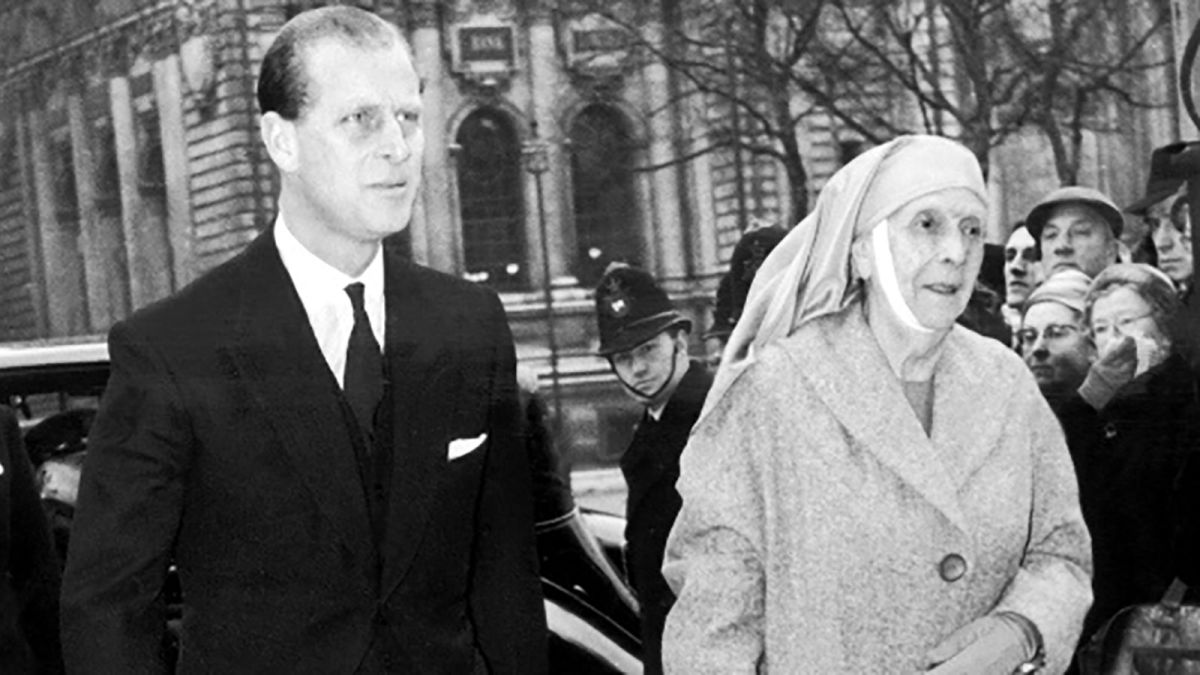
By 1914, the couple had four daughters, Princesses Margaret, Theodora, Cecilia and Sophia, and lived in Greece.
Philip was born in 1921 and shortly afterwards the Greek royal family was exiled after the abdication of King Constantine I of Greece, who was forced to step down in 1917. Prince Andrew, who participated in the disastrous for Greece Greco-Turkish war, as commander of a division, was court martialed, and sentenced to death. The family fled Greece, boarding a British warship, in Corfu. Philip, a baby at the time, was sequestered in a crate of oranges. And so began his adventures. He changed countries, hands, families for years.
While Philip was still an infant, Paris became the family’s home. Once in France, they lived on alms from relatives. This stressful period put a strain on Alice, whose fervent religious beliefs had become increasingly eccentric over the years.
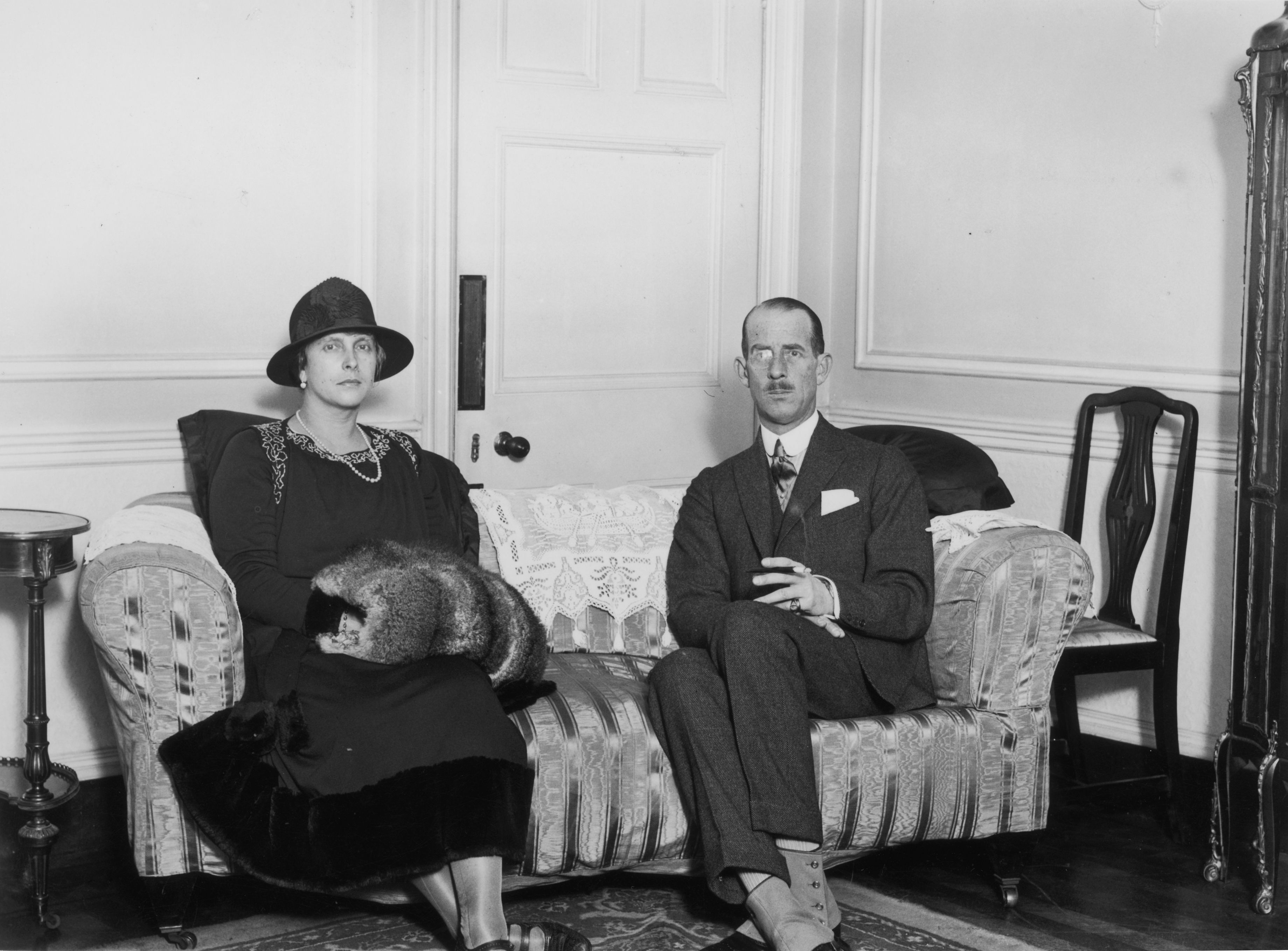
Princess Alice's breakdown
After a few turbulent years, Alice suffered a nervous breakdown in 1930. She began hearing voices and believed she had encounters with Jesus and other religious figures.
The princess was sent to a sanatorium when Philip was just nine years old. He was taken on a picnic with his grandmother and when he returned, his mother had left.
Alice was diagnosed as schizophrenic before being treated by Sigmund Freud at a clinic in Berlin.
On the advice of the famous psychoanalyst, her ovaries were bombarded with X-rays, which were supposed to rid her of her unfulfilled sexual desires.
This treatment is believed to have caused an early menopause. There is no evidence that Alice herself had been advised of this or had consented to the procedure.
After the treatment, she was admitted to a Swiss sanatorium where she remained for two and a half years.
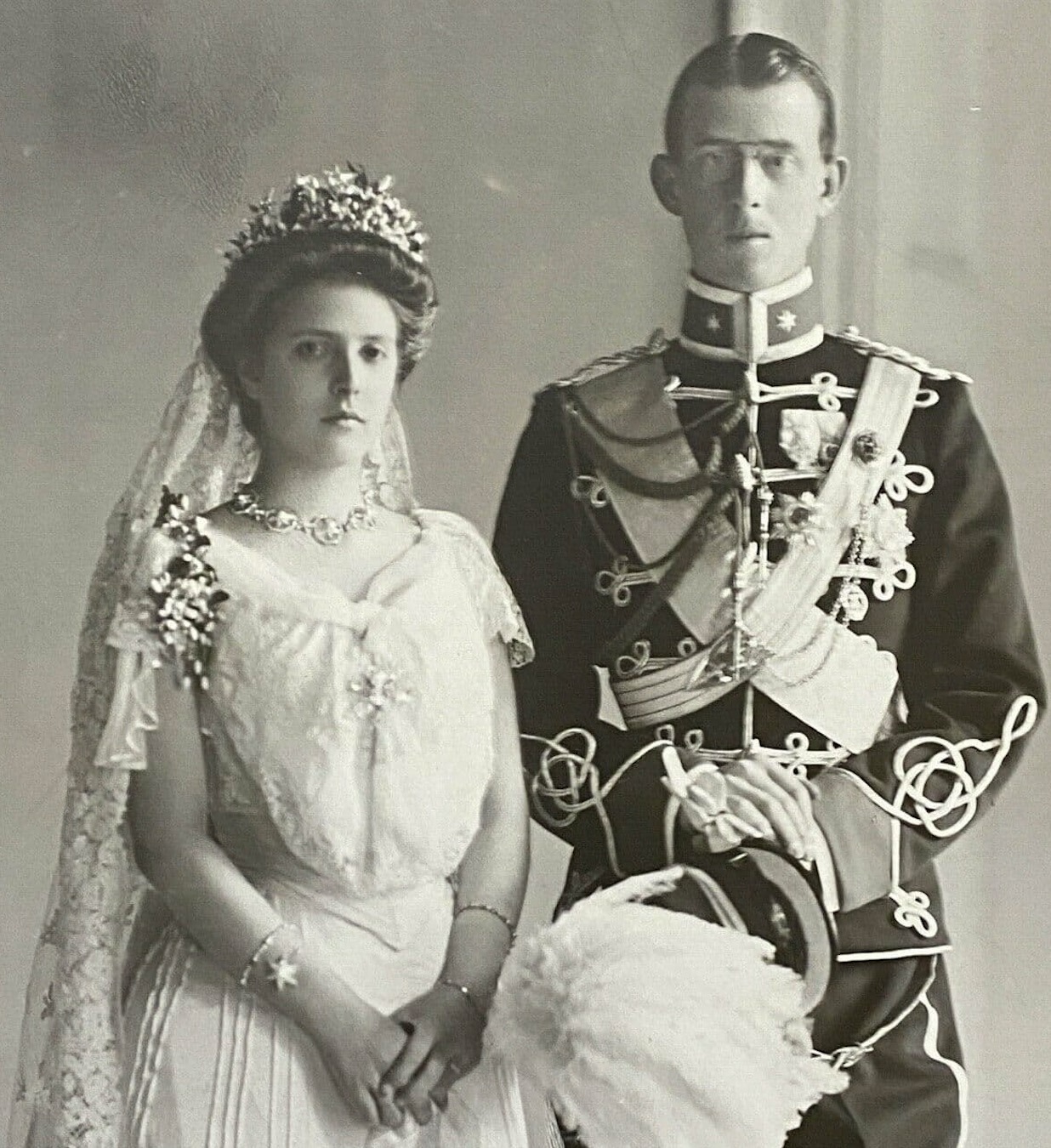
During the same period, Philip was sent to boarding schools in England and Scotland.
He spent his holidays visiting relatives, including his uncle Lord Mountbatten, who he grew very fond of. Meanwhile, Philip's father, Prince Andrew, abandoned his wife to live on the French Riviera with his mistress, although they never divorced. He died in 1944 in Monaco.
When Alice was finally released from the sanatorium in 1932, she wandered around small German inns. Philip was not reunited with his mother until he was 16 in 1937, at the funeral of his sister Cecilia, who had died in a plane crash.
Alice wanted Philip to return to Athens with her after the restoration of the Greek monarchy in 1935. But Philip had already set his sights on a career in the Royal Navy, so his mother was left alone in Greece.
Righteous among nations
By 1941, Alice was stranded in Nazi-occupied Greece. Her brother, Lord Mountbatten, sent her food parcels, which she distributed to those in need.
The Greek royal family had been well acquainted with the family of Haimaki Cohen, a Jew and former member of Parliament, from Tricala, in northern Greece. In 1941, when Germany invaded Greece, the family fled to Athens – then still under Italian rule, where the anti-Jewish policy was more moderate. However the period of relative saftely lasted only until September 1943, when following Italy's surrender to the Allies, the Germans occupied Athens and the hunt for Jews began. By that time Haimaki Cohen had died. His widow, Rachel, and her five children were looking for a place of refuge. The family's four sons wanted to cross to Egypt, and join with the Greek government in exile that was in Cairo. But the trip proved too hazardous for Rachel and their sister. Princess Alice heard of the family's desparate situation and offered to shelter Rachel and her daughter, Tilde, at her home. They were later joined by another son who was unable to make the journey to Egypt and had to return to Athens.
The Cohens stayed in Princess Alice's residence until liberation. There were times when the Germans became suspicious, and Princess Alice was even interviewed by the Gestapo. Using her deafness, she pretended not to understand their questions until they left her alone.
. “I suspect it never occurred to her that her act was in any way special,” Prince Philip said when he visited her grave in 1994. For this the State of Israel proclaimed her "Righteouw among Nations".
“She was a deeply religious person and would have considered it a perfectly human act towards her fellow human beings who were in danger.”
After the war, Philip proposed to Princess Elizabeth with a ring containing diamonds from his mother's tiara.
Alice sold the rest of her jewelry to create her own religious order, the Christian Sisterhood of Martha and Mary, in 1949, and became a nun.
She went on to build a convent and an orphanage in a then poor suburb of Athens.
Alice remained in Greece until 1967, when the military coup took place. She refused to leave the country until Prince Philip sent a plane and a special request from Queen Elizabeth to bring her home.
She spent the last years of her life living at Buckingham Palace with her son and daughter-in-law. Hugh Vickers wrote in “Alice: Andrew of Greece,” that mother and son were… alike. So much so that it irritated Philip.
He wrote that Princess Anne recalled “watching her father come out of her grandmother’s room, talking angrily.”
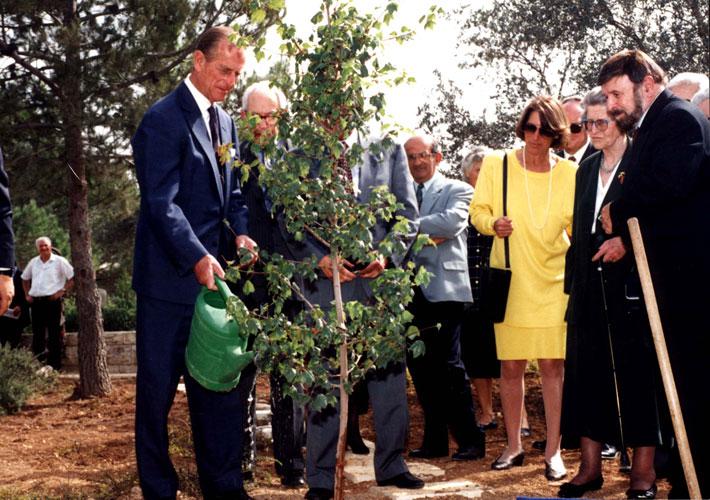
Her final days as a nun, and her grave in Jerusalem
Alice, who spent the last 20 years of her life as a nun, was originally laid to rest in a crypt in St. George’s Chapel in Windsor.
Her last wish was to be buried with her family in Jerusalem. After the British royal family conducted “delicate negotiations with the Jordanian royal family,” the princess’s wish was granted in 1988, 19 years after her death.
“Her burial place, the magnificent gold-domed Church of St. Mary Magdalene, at the foot of the Mount of Olives, is in East Jerusalem — one of the most sensitive spots in the Middle East,” the Daily Mail reported at the time.
Prince William visited her grave in 2018 on the last day of his tour of the Middle East and placed flowers on her sarcophagus, which he collected from the garden of Philip Hall, the British Consulate General in Jerusalem.
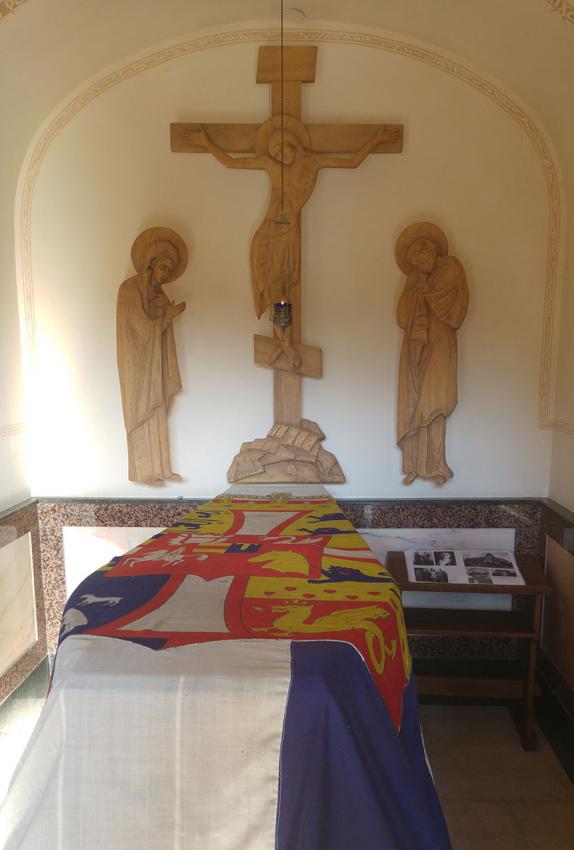
Related items
-
 Nea Peramos: The scenarios that the Hellenic Police are examining for the brutal murder of the 27-year-old
Nea Peramos: The scenarios that the Hellenic Police are examining for the brutal murder of the 27-year-old
-
 Jobs boom narrows Greece's unemployment gap in 2025
Jobs boom narrows Greece's unemployment gap in 2025
-
 Mitsotakis interview on SKAI TV
Mitsotakis interview on SKAI TV
-
 When Epstein commented in an email about Varoufakis and Tsipras after the referendum
When Epstein commented in an email about Varoufakis and Tsipras after the referendum
-
 AHIF and Queens College release special Journal of Modern Hellenism Issue on genocide
AHIF and Queens College release special Journal of Modern Hellenism Issue on genocide
Latest from E.Tsiliopoulos
- Nea Peramos: The scenarios that the Hellenic Police are examining for the brutal murder of the 27-year-old
- Jobs boom narrows Greece's unemployment gap in 2025
- Mitsotakis interview on SKAI TV
- When Epstein commented in an email about Varoufakis and Tsipras after the referendum
- AHIF and Queens College release special Journal of Modern Hellenism Issue on genocide

